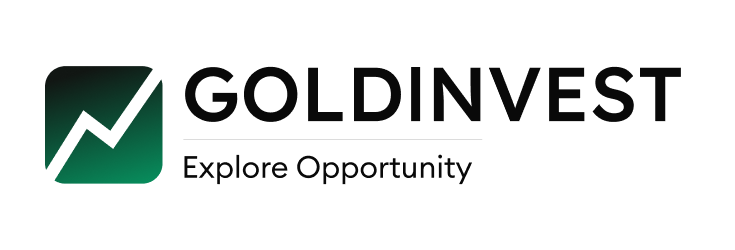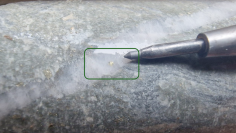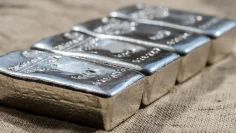BRICS countries among the most active gold buyers
One of the special features of gold is that it is practically never used. This means that almost all the gold mined in the cultural history of mankind is still available. We find it as jewelry, as golden cladding in churches, temples and mosques – and as bars or coins in the vaults of central banks.
The latter currently own over 36,000 tons of gold. This corresponds to around a fifth of all the gold that has ever been mined. Since 2009, central banks have again been active on the market as net buyers, i.e. they buy more gold in total than they sell at the same time.
The fact that this shift from net seller to net buyer began in the year after the outbreak of the financial crisis should give us pause for thought. It should also give us pause for thought that this development has not come to a halt since then, even though the financial crisis is generally considered to have been resolved and has not dominated the headlines for a long time.
Central banks hold a fifth of all gold
Nevertheless, central banks have bought one in eight ounces of the yellow metal produced worldwide over the last ten years. While modern fiat currencies can be multiplied at will, this is not possible with gold. Here, every ounce still has to be painstakingly found, mined and purified. There is no shortcut on this sometimes very arduous path.
Data from the World Gold Council (WGC) shows the ten countries that have bought the most gold in the last ten years. Hungary is in 10th place on this list. Although the Hungarian central bank has held gold since it was founded in 1924, it has only bought more gold in recent years. 91.4 tons have been purchased in the last ten years, meaning that the country now holds 110 tons of gold. Which in turn means that Hungary holds the highest gold reserves per capita in Central and Eastern Europe.
Qatar’s wealth is based on its oil and gas reserves. However, gold is becoming increasingly important as a reliable backup. The central bank has therefore bought 96.3 tons of gold since 2014. Singapore has also made great efforts, as the small city state has increased its gold reserves by 101.5 tons to 236 tons. This is the highest level since independence in 1965.
Central Asian countries increase their gold reserves
Uzbekistan is a quiet but powerful player on the gold market. The Central Asian state is constantly expanding its gold reserves and has acquired 126.3 tons of gold in the last ten years. The gold reserves currently make up almost 80% of the total currency reserves and currently amount to 373 tons.
Kazakhstan followed a similar path. It produces gold itself and has increased its gold reserves by 132.6 tons. Its gold reserves are currently worth 23 billion US dollars and the country is planning to slightly reduce the proportion of gold in its reserves.
India is known as a country where gold plays a major role. However, the Indian central bank has also significantly increased its gold holdings in recent times. Gold purchases in the first half of 2024 were the highest since 2013 and were twice as high as the total purchases in 2022 and 2023.
Three BRICS countries are among the five most active gold buyers
Poland and Turkey have also come to the fore as buyers in the last ten years. The Polish central bank increased its gold holdings by 295 tons, while the Turkish central bank bought as much as 475.6 tons of gold in the same period. Currently, 16% of Poland’s reserves consist of gold and there are plans to increase this share to 20%. This would bring Poland in line with Turkey.
China has bought a lot of gold in the last ten years. The gold holdings of the People’s Bank of China increased by a total of 1,210.2 tons. However, the Chinese have taken a break from buying gold this year in light of the sharp rise in prices.
This has probably led to Russia taking the top spot in the last ten years with 1,230.6 tons. For fear of sanctions, Russia gave the rouble the strongest gold backing of all currencies years ago and, due to the sanctions resulting from the war against Ukraine, gold is also playing an increasingly important role in payment transactions with other nations.
If the central banks are backing gold as clearly and consistently as they have been doing since the financial crisis, then private investors should also listen very carefully to this message and integrate it into their planning. After all, the guardians of fiat currencies are sending a clear message with their actions.
Source: Comdirect
Disclaimer: The contents of www.goldinvest.de and all other information platforms used by GOLDINVEST Consulting GmbH are intended solely for the information of readers and do not constitute any kind of call to action. Neither explicitly nor implicitly are they to be understood as a guarantee of any price developments. Furthermore, they are in no way a substitute for individual expert investment advice, but rather represent advertising/journalistic texts. Readers who make investment decisions or carry out transactions on the basis of the information provided here do so entirely at their own risk. The acquisition of securities involves high risks that can lead to the total loss of the capital invested. GOLDINVEST Consulting GmbH and its authors expressly exclude any liability for financial losses or the guarantee that the content of the articles offered here is up-to-date, correct, appropriate and complete. Please also note our terms of use.
In accordance with §34 WpHG, we would like to point out that partners, authors and/or employees of GOLDINVEST Consulting GmbH may hold shares in some of the companies mentioned and therefore a conflict of interest may exist. Furthermore, we cannot rule out the possibility that other stock market letters, media or research companies may discuss the stocks we discuss during the same period. Therefore, there may be a symmetrical generation of information and opinions during this period. Furthermore, a consultancy or other service contract may exist between the companies mentioned and GOLDINVEST Consulting GmbH, either directly or indirectly, which also gives rise to a conflict of interest. In this case, GOLDINVEST Consulting GmbH is remunerated for reporting on the company mentioned.

















